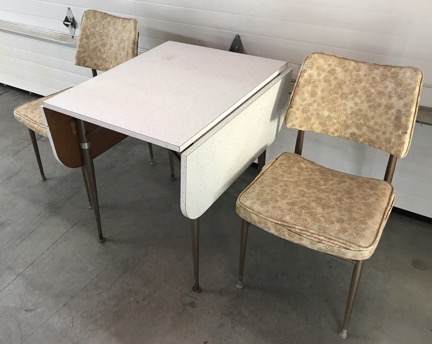I knew the FAA was slow, but this is ridiculous.
I’m terrible about opening my mail. I routinely fetch it from my mailbox (which is two miles from my home) and leave it on the dashboard of whatever vehicle I’m driving. Or toss it behind the seat. Or bring it inside, but leave it in my “inbox” pile. No matter where it enters my life, it sits there for a long time. Truth be told, there’s a six-month period in early 2014 when I just stuffed it all in a box and lost it in my garage. (I honestly think there’s a black hole in there.)
This time of year, when I’m actually expecting checks, I pay a little closer attention to what comes in the mail. That’s why I noticed the letter from the FAA and opened it within two weeks of receipt. (Heck, I knew the FAA wasn’t sending a check, so why rush?)
Inside was the letter dated 5/19/2017 that you can see below.

So the FAA basically waited 17 years to give me an opportunity to opt out of releasing my address to the public.
It basically says that back on April 5, 2000 (not a typo), Congress and the President — Bush 43, I guess — enacted a law that required the FAA to make pilot addresses available to the public. Fortunately, I can opt-out of this invasion of my privacy by signing the letter and sending it back to the FAA.
But I have to hurry! Even though it took them 17 years to send me this letter, I only have 90 days to respond.
Can you believe this crap?
My first thought was what a waste of taxpayer money this is. Wikipedia reports that there were 590,039 certificated pilots in the United States as of 2015 year-end. That means the FAA had to print and mail 590,039 letters just like the one I got.
Maybe that’s why it took so long? Maybe they just got up to the Ls?
So the FAA has blown through 1181 reams of paper and a similar number of boxes of envelopes. Even if they got bulk rate on mailing all those envelopes, they’ve still spent well over $100,000 on postage. Somebody had to handle the mailing — even if a machine stuffed the envelopes, someone still had to tend to that machine and get them to the post office. How many trips to the Post Office is that? Do they have trucks standing by for mass mailings like this?
So how much money have they pissed away on this so far? A quarter million? More?
And then there’s the processing. I’m not going to the website. I’m going to sign the letter and mail it back. There’s got to be some poor slob in Oklahoma City who’s sitting at a desk just waiting for envelopes with signed letters to come in. He or she has to look up each one in the system and toggle a check box to say we want our addresses kept private. And then what? Do they actually file all that paper? Stick it in filing cabinets? How many filing cabinets do they have? How many rooms does that fill? Do they have buildings filled with filing cabinets of paper?
Paper!
And for what? What gives Congress and the President the right to decide that the public is entitled to the addresses of certificated pilots? What is the benefit of such a rule? Why would they even do this?
And who the hell wouldn’t opt out?
This is stupid from start to end. it’s wallpapered with stupid.
But that’s our tax dollars at work. Imagine how many educational programs the cost of this mailing would have funded. How many Meals on Wheels dinners. How many airport improvements, for Pete’s sake.
Why are the people in Washington so damn stupid with our money?


 “Advice from a Raven” was different, though. Each of its seven points rang true with me:
“Advice from a Raven” was different, though. Each of its seven points rang true with me: